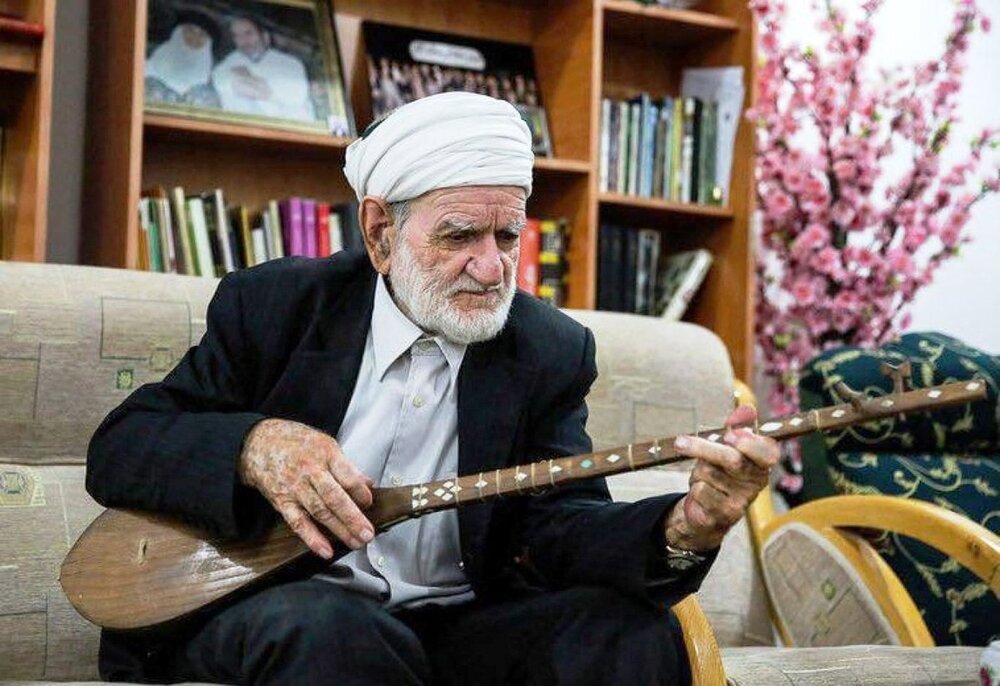Osman Mohammad-Parast, dotar virtuoso and top master of Khorasan maqami music, dies at 94

TEHRAN – Dotar virtuoso Osman Mohammad-Parast, who was a great master of Khorasan maqami music, passed away on Thursday at 94.
He was admitted to a hospital in his hometown of Khaf, Khorasan Razavi Province, for a lung infection, Persian media reported.
He was a self-taught musician who began learning dotar, a two-string instrument with a pear-shaped body, at ten in secret due to his father’s strong disagreement about music coming from a traditional opposition to music among certain people in Iran.
However, the disagreement was resolved after his father found Osman performing a song about the Prophet Muhammad (S).
In an interview with the Persian service of ISNA, Mohammad-Parast once said that he was working at his father’s farm at that time.
“My father told me, ‘Don’t panic anymore, I wasn’t aware that you perform songs about the Prophet; you deserve all the money you’ve spent in this way an I’ll give more money to improve your knowledge of music,’” Mohammad-Parast recounted.
Osman then set up a grocery on his own and purchased a bus working on a route between Khaf and Mashhad. He then joined charitable groups setting up schools in remote regions.
He made some modifications to dotar playing, which were common in Khorasan maqami music, and initiated his own style.
He made a major breakthrough in dotar playing, which was highly regarded by many top Iranian musicians such as vocalists Mohammadreza Shajarian, Sima Bina and Shahram Nazeri, and kamancheh virtuoso Kayhan Kalhor and tar master Jalil Shahnaz, with whom he gave several performances.
One of his smash hits is “Navai Navai”, a mystic song composed by Tabib Esfahani, which has also been performed by Gholamali Puratai, Qorban Soleimani and several other singers of Khorasan maqami music.
He gave concerts in numerous countries, including Germany, the U.S., Russia, Japan and England.
“Many people don’t believe that I have performed the pieces only with a dotar,” he once said.
His home had been a favorite haunt of masters and learners of Khorasan maqami music over the past few decades.
The Khorasan Department of Cultural Heritage, Tourism and Handicrafts named him a Living Bearer of Intangible Heritage and honored him with an Eternal Tile, which was embedded on the wall of his house in 2017.
As a Sunni, Mohammad-Parast had said that he learned music from God, Whom he believed is a lover of music. He also believed that playing the dotar is a calling upon God.
He selected names of Shia saints such as Imam Reza (AS), Imam Javad (AS), Imam Hussein (AS) and Hazrat Fatima (S) for his children.
In 2017, he was decorated with a medal from the Islamic Culture Capital. Mashhad was selected as the Islamic Culture Capital for 2017 by the Islamic Educational, Scientific and Cultural Organization (ISESCO).
Photo: This file photo shows Khorasan maqami music master Osman Mohammad-Parast performing on the dotar.
MMS/YAW
